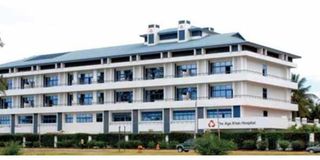Aga Khan University Hospital acquires $6 million ultra-modern diagnostic machine

What you need to know:
- The machine, worth approximately $ 6 million (about Sh13 billion), is known as Positron Emission Tomography (PET) CT scanner and Cyclotron.
Aga Khan University Hospital (AKUH) in Nairobi has acquired ultra-modern equipment, which can help diagnose complex conditions associated with the heart, the brain, the central nervous system as well as for identifying cancer complications.
The machine, worth approximately $ 6 million (about Sh13 billion), is known as Positron Emission Tomography (PET) CT scanner and Cyclotron.
Touted as the first in East and Central Africa, the coming of the diagnostic equipment means that patients no longer need to travel out of the region for the most modern cancer diagnostics, said a statement released by Aga Khan University Hospital.
According to the statement released on Wednesday, December 20, the equipment is currently being installed and a comprehensive staff training programme is underway to prepare its launch in March.
Hospital’s chief executive officer Shawn Bolouki said the technology will revolutionise diagnostics and treatment in the region.
A PET CT scan is an imaging test that is used to diagnose diseases, plan treatment, to find out how a condition is progressing and to see how effective treatment is on the disease, says Prof Sudhir Vinayak, Chair, Department of Radiology at Aga Khan University Hospital.
“It will enable doctors to identify health threats at the cell-level thus giving them the best view and time of treatment for complex diseases such as cancer and heart diseases, brain and other central nervous system problems, thereby improving treatment outcomes,” he said.
“PET/CT service will be offered as an outpatient procedure, unless the patient is already admitted to the hospital, and lasts for at most 30 minutes,” Prof Vinayak concluded.
The Section Head Medical Oncology AKUH, Dr Asim Jamal, said the technology can reveal the presence and stage of cancer, including whether and where the cancer has spread to, and help doctors decide on treatment.
“While an MRI and CT scan shows how a particular part of the body looks, a PET/CT scan can reveal how it is functioning. PET/CT scan technology is also critical in neurosciences especially in the diagnosis of neurological conditions such as dementia and epilepsy,’’ he added.



